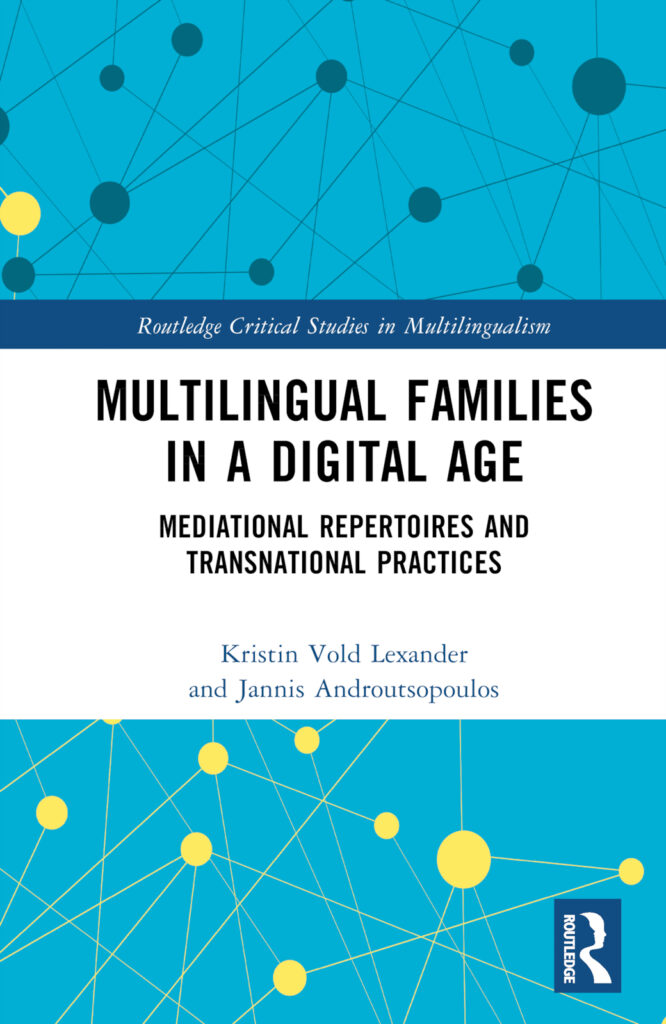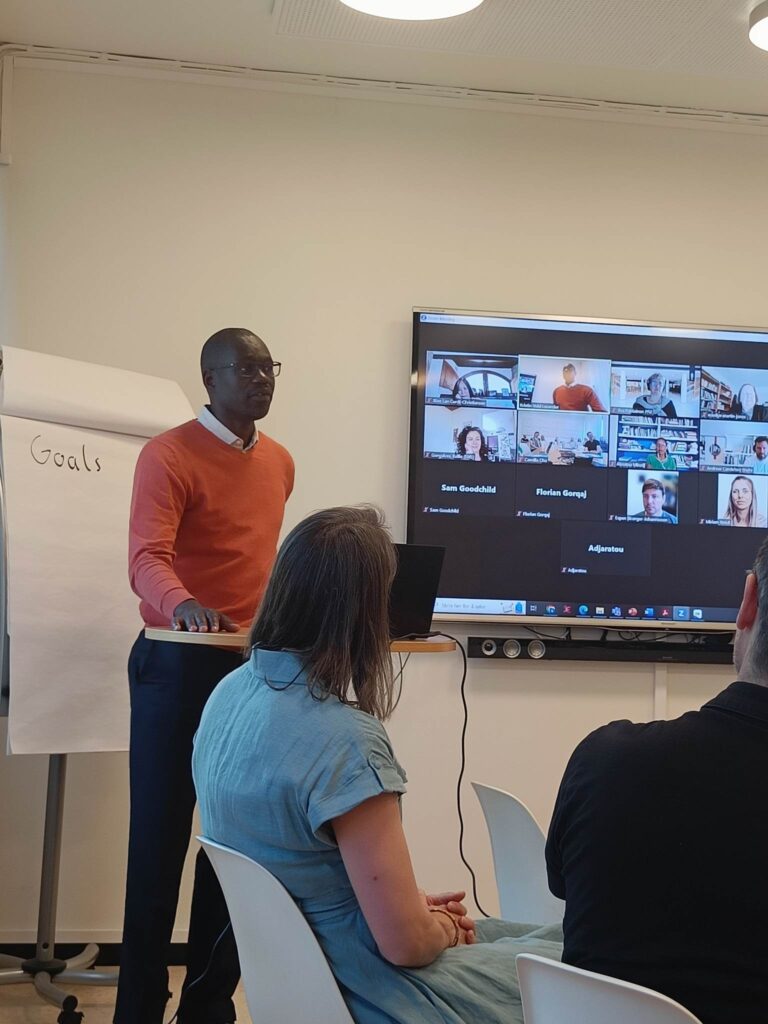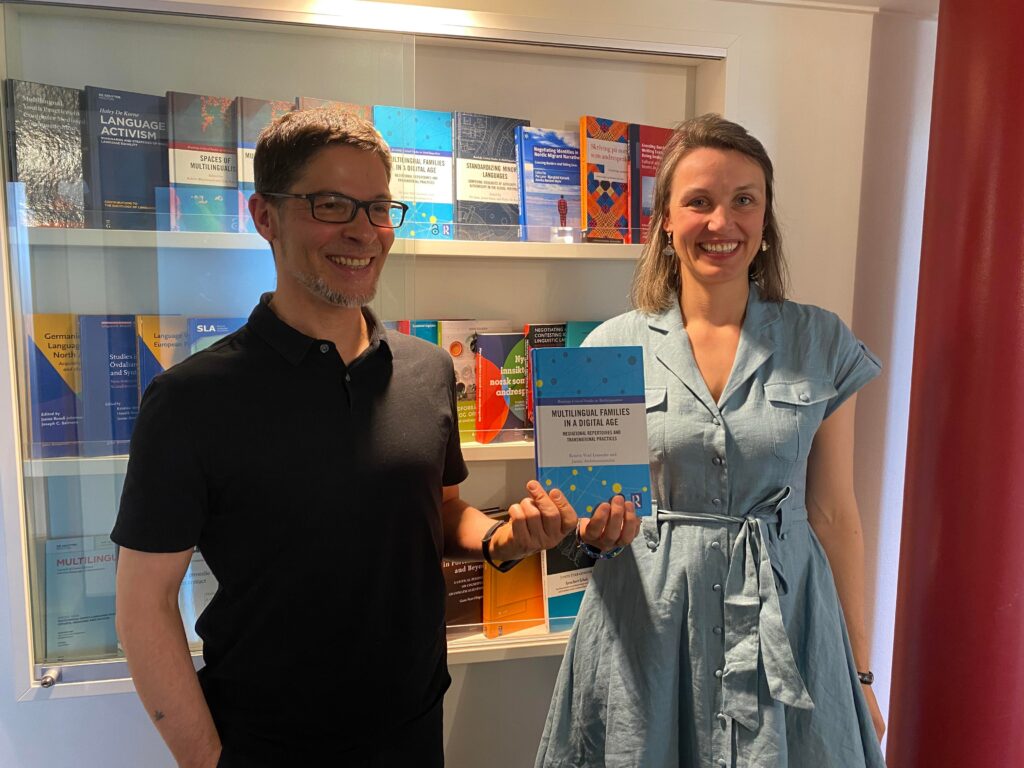
Multilingual families in a digital age. Mediational repertoires and Transnational Practices is published in the Routledge Critical Studies in Multilingualism series, with series editors Marilyn Martin-Jones and Joan Pujolar. It was launched Friday 2 June, at MultiLing Center for Multilingualism in Society across the Lifespan at the University of Oslo (see photos), where the research was initially carried out in the Multilingualism and mediated communication project with Jannis Androutsopoulos. Through our continued collaboration in the DigiMulti project, we have been able to write it up in this book. The book comes in both hardback and e-book, and Chapter 6 ‘Doing family’ online: Translocality, connectivity and affection is open access.

Center director Unn Røyneland, former center director Elizabeth Lanza, Åsa Palviainen, Xiao Lan Curdt-Christiansen, Marilyn Martin-Jones and Mar Gueye contributed to the launch. We thank everyone who have assisted and supported us in our work!

Book blurb
This book offers new insights into transnational family life in today’s digital age, exploring the media resources and language practices parents and children employ toward maintaining social relationships in digital interactions and constructing transnational family bonds and identities.
The book seeks to expand the boundaries of existing research on family multilingualism, in which digital communication has been little studied until now. Drawing on ethnographic studies of four families of Senegalese background in Norway, Lexander and Androutsopoulos develop an integrated approach which weaves together participants’ linguistic choices for situated interaction, the affordances of digital technologies, and the families’ language and media ideologies. The book explores such key themes as the integration of linguistic and media resources in family repertoires, creative practices of digital translanguaging, engagement in diaspora practices, and opportunities of digital communication for the development of children’s heritage language skills.
With an innovative perspective on ‘doing family’ in the digital age, this book will be of interest to students and scholars in multilingualism, sociolinguistics, digital communication, language and communication, and language and media.